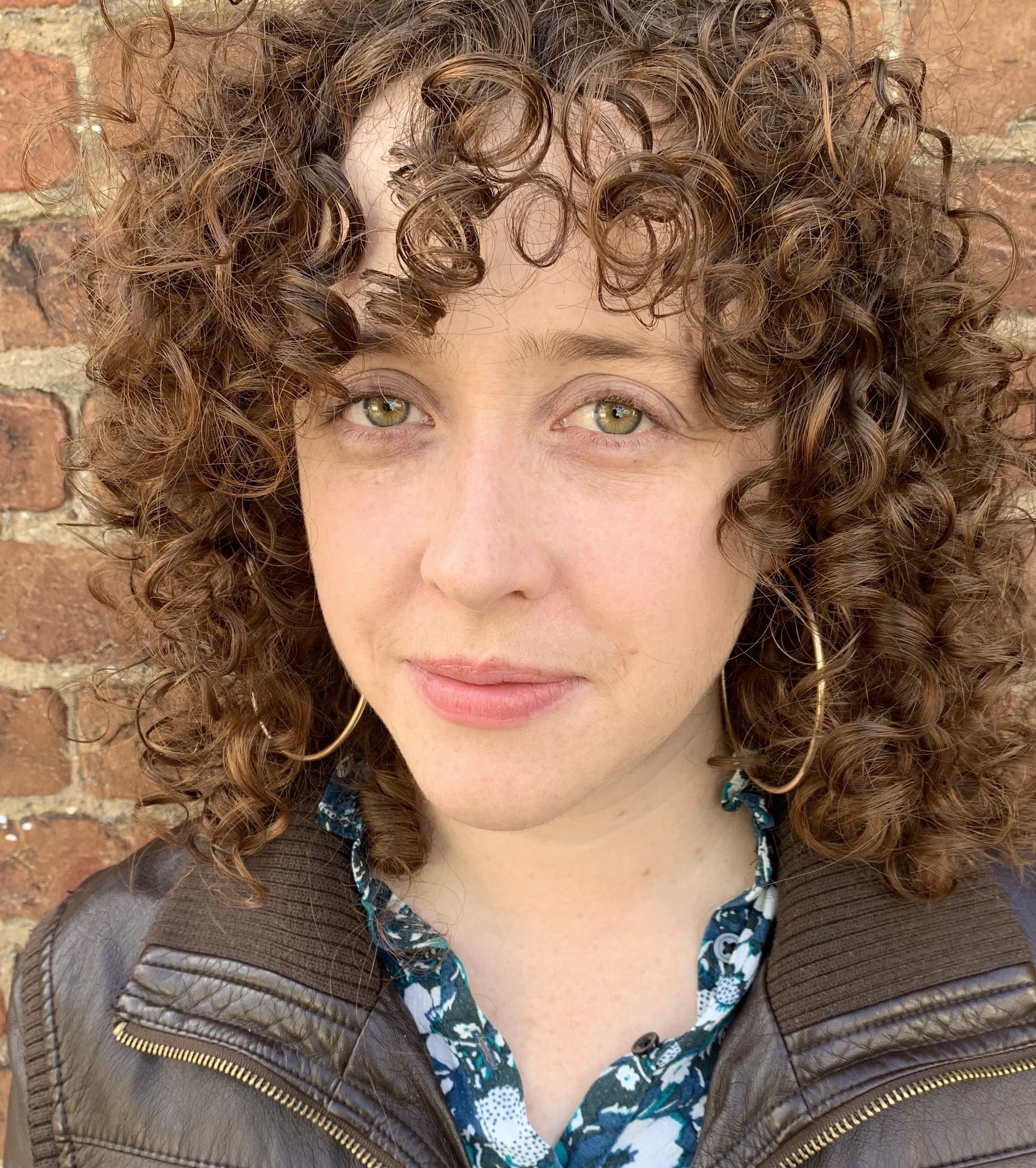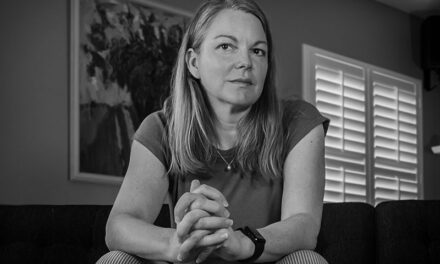
Assistant Editor Lily Davenport: Pamela Johnson Parker’s triptych spans three generations of labor, sex, and shifting relationships to the land in the mountains of West Virginia and Kentucky. These pieces move farther from their dark and cavernous center as time passes—taking us from the miner who washes coal dust from his body in the first section, to his granddaughter, who has only met with the mines in her family’s stories—and deeper into that image’s thematic and emotional implications. Whether it’s in the all-encompassing darkness of a mine’s depths, or the contained black of a crossword’s null spaces, this piece investigates its narrators’ echoing, shadowy origins in their predecessors’ concealed acts of desire.
Jesus Years: A Genealogy
Primipara. West Virginia. Dark Thirty. the Miner.
Out back, he’ll wash up, pare the black moons from his fingernails, inhale. Smoke rings will drift, diaphanous, before disappearing into a sky the color of the ash he’ll tamp out under his boot.
Soon, supper; he’ll go in through the kitchen door, in to his wife, blond wisps curling over her forehead. She’ll stand by the stove while he eats, pour him another cup of coffee, ask if he wouldn’t like just one more slice of pie.
After supper, they’ll sit up for a while, watching whatever’s on the black and white, smoke from his Camel swaddling the space between them. He’ll notice her skin, how pale it is, how frail the nape of her neck below the heavy knot of her hair. In the light cast by Route 66, how her eyes will shine silver, just for a moment, just before she takes his hand, before she says, “Upstairs?”
She’ll stand there, naked, in front of the mirror, begin to brush her hair—one hand rising, falling, like a tide through its pale river. He’ll notice her breasts waxing full as moons, how her waist has started to thicken.
He’ll move toward her, slowly.
For so long, only the two of them.
And he’ll feel that ache start sneaking up his spine, the weight of all those years spent underground. He’ll reach for her, want to sink completely into her, as though he were the dust that settles deep into the pores of his hands, his neck, his face—black coal, black coal that covers everything.
It’s a taste he can’t get from his mouth.
Nullipara. Kentucky. Midnight. the Miner’s Son.
Scented and sacheted she had powdered herself up, rouged her not-yet-raddled cheeks, gotten herself gussied up like a girl but not even lamplight was that gentlesome with her, it would take candles and it would take a grievous number of them to make her look young as she used to look (she had said that); but she was still a looker and you’d looked and looked at her as she bit the side of your index finger right below the knuckle when she took it in her teeth to keep from crying out; and she didn’t draw blood but she did leave her mark there in the puff and dowse of flesh that’s just above where your lifeline arcs like the curve a compass has left or like a sickle’s slant and the shape of her bite is like an eye, one embroidered as a hex to keep away a wayward look, in neat but separated stitches, needle flashing down into and then up through, the same-self way women in your family sometimes finished off a quilt—a blanket stitch, an edging—or maybe the marks on the highway where passing is allowed, and you remember from your math classes at the junior college Venn diagram, from your mama and your grandmama the shapes in a wedding-ring quilt; here there is no blanket stitch no edging but you’d been on the edge, you’d been near to falling off a ledge your own self and then she’d finished and then she’d finished you off—and you remember her hands dry and soft and all over you and you remember her teeth almost straight with one incisor turned a bit like a sunflower toward the light and you remember other places those dry fingers and those slicked teeth had grazed, and you check yourself in the mirror for other marks and find none but the first, where now you see a little steel trap and know you are caught in it, know you were meant to find it, know you would have to find her even if it meant a hurt as bad as gnawing your own finger off and it probably would be that bad (Kindly would have hurt,she would have said in her slow voice, that drawl drawing you to her first, an accent like yours used to be) and you’ll say one word, “Damnation,” and then you’ll speak another, which is the name she’d told you was hers, and you aren’t sure that they’re not the same thing, even though there’s no chime to them, they have the same music and it’s a beat thrumming through the systole and diastole of a pulse taken with three fingers: alive alive alive
Vertex. Kentucky. Aubade. the Miner’s Granddaughter.
I have fallen in and out of love with you so many times that my heart is knapped like chert, it’s an arrowhead so sharp it pierces through the skin, like a perfect triangular point I found in a cornfield row, turned by a plow’s blade after centuries underground, the edge still so sharp that my finger oozed for hours.
In the cage of my ribs my heart holds a single arrow nocked on its shaft.
In the cloche of my chest is a waxen bouquet under glass, star-raker lilies its chambers and bleeding hearts, those pudendal pouts, for valves.
Obviously, I don’t understand hearts or, for that matter, flowers. My favorite suit of cards. My favorite scarlet blooms, you brought me once. Scarlet flowers, and me, your scarlet woman, the other woman.
None of this is working, so I’ll start again, spell it out.
Falling in with you again (down into the down of my duvet, and then deeper into my feather mattress), well, every time feels like plummeting down a sinkhole, or tumbling into a well without wishing, or riding in an old mine elevator.
My grandfather told me about that once—how he’d be in the coal-mine elevator, slowly falling and falling and falling, only a cone of light piercing the absolute blackness. My dad was a miner too, but for fluorite, which is a much safer occupation, and much brighter. He told me that when veins show up in the mines, they fluoresce green, yellow, purple; how Kentucky miners in the 1940s were exempt from the draft because fluorite strengthened steel for tanks and battleships and aluminum for fighter planes.
Unlike the men in my family, you’re in Quality Control. At Columbia Mines, you’re exempt from any safety hazards except for the lab protocols you write. I play by my own rules,you told me once. I wonder about those protocols. I wonder what you think you’re exempt from here. I wonder what’s stronger—staying or straying.
I do know that she is the one topic exempt from our otherwise lively conversation.
And whenever you get up at midnight, to go first to your lab and then on home to your wife, I’m left with only white sheets crumpled like snow angels from the shapes of our bodies, with only the ceiling fan’s metronomic clickclickclick. There’s only you doing the leaving, and leaving me quivering like the bow in an archer’s hands after an arrow’s released. Maybe this time you won’t leave me for good.
Instead of counting sheep, I tally up the words I love—haft, nock, cloche,and the new one I learned from a crossword. Piceous: the dark shade of crows, veins of fluorite purple and blue flashing in their black feathers. This makes me think of the way they cock their heads just like you do right before you’re going to kiss me, which makes me think of the way crows pick over something left behind, carrion, which I used to think was carry-on when I was smaller. We’ve been carrying on, off and on for years, and you are my crow, my dark and wayward familiar.
And that was a clue in the New York Times last Sunday, familiar, and it was both familiar and odd to be solving the crossword by myself, because I always thought I’d work it out with a husband, in a kitchen, during the honest light of morning, and not carrying on here in the dark, first with you and now by myself. I imagine shadows that fall over white sheets, some logical order, umbra, where no light falls, and penumbra, where some light falls, but most of it is blocked by an immovable object.
And that makes me think about crosswords as a metaphor for something more orderly—plots where everything is black and white, where everything is symmetrical—words up and down and across, numbers going forward, and all the black squares lining up diagonally. I think about that, about quilts and mirror images.
I wonder how you stay married, and I wonder how I stay with you.
Maybe just like in the mines and in the crosswords, it takes the light and also the dark spaces to make things whole.
Pamela Johnson Parker teaches at Murray State University in Kentucky. Her poetry collection, Cleave, won the Trio Award and was published by Trio House Press in 2018. Parker’s poetry and prose have won the Al Smith Award for Excellence in Literature and the Kentucky Women Writers Award for creative nonfiction.











